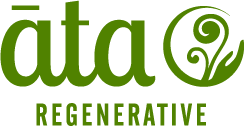I recently had the pleasure of visiting Portugal as part of a conference for EOV Accredited Professionals (including Allan Savory himself) who make up the Savory Global Network.
The Savory Network is unique amongst international regenerative groups. It is a nodal network of 54 Hubs, each of which is an organisation with expertise and understanding of agriculture specific to their region. These hubs are generally deeply involved in farming and agribusiness, focusing on creating truly regenerative outcomes through applied Holistic Management.
The network started in 2014; there are now 54 independent hubs worldwide, helping to regenerate nearly 22m ha globally.
This reunion was an amazing event, as it was the first time we had been able to get together in person at a conference since 2019.
Since joining the Network as the NZ Hub, I have made some great friendships with special people. It has been very heartening for me to go from feeling quite isolated and swimming against the tide in my work, to being part of a global group of like-minded people, all experiencing the same challenges.
While we are separated by distance and all different in our context, business models and nationalities, a common purpose tightly connects us. The diversity of people and organisations who make up the network gives it strength and resilience.

This event was a chance to reinforce those relationships, make new ones and remind us of the reasons we are so committed to our common cause.
As in any family, we have our differences, and through some good constructive debate, we covered much ground over three pretty intense days.
With thirty-plus hours of flying ahead of me to reflect on this event, I am stronger for going and regenerated in my desire to bring about regenerative change in New Zealand.
The Savory Network explores the life of a Portuguese farm
During this trip, we had the pleasure of visiting the Herdade de São Luís, a picturesque farm in Portugal and a Savory Hub.
It was great to visit this farm with Allan Savory and hear his comments on how well Francisco and the property are doing.
We experienced this for ourselves through the tour of the property and the fantastic lunch of fare from the farm – wonderful meats, vegetables, fruits and wine. Proof of the connection between farming methods and the health of land, animals, and people was clearly apparent.

Spread over 700 hectares, Herdade de São Luís is a working farm that has been in the family for four generations, with the current owner and manager being Francisco Alves.
It offers a unique blend of natural beauty with beautifully planted centuries-old cork trees and modern amenities where guests can explore the vast fields and forests surrounding the property.
The estate is home to several animal species, including cows, pigs, sheep, goats, and horses. Visitors can participate in the farm’s daily activities, such as feeding the animals or milking the cows.

The adoption of regenerative principles for Herdade de São Luís
Pioneering the first regenerative step, Francisco’s father developed an innovative pig maternity system 20 years ago, still in use today. This system comprises a special area for breeding sows with lots of shadow, water, and huts. They spend two weeks there before giving birth. The sows remain with the piglets in this area for two months before being transferred to another area to walk and graze. This more natural animal husbandry practice resulted in vast improvements to the farm and the animals.
When Francisco took over from his father, he was concerned about what he saw on his farms in his region. He observed the land drying out, soil loss, and falling productivity with increasing dependence on inputs.
Francisco believed that there was potential to take the management one step further. After attending holistic management courses, he started implementing Regenerative Agriculture techniques on the land and soil health became the focus of the farm operation.
In the last six years, they have begun to adopt and apply Regenerative Agriculture principles, particularly rotational grazing and the use of animals to improve rather than extract from land health.
“Livestock has a fundamental role in the regeneration and construction of soil. For that to happen, we have to learn how to lead animals correctly.” – Francisco Alves

They diversified their herds by adding goats and sheep to their ecosystem. They now produce high-quality nutrient dense food whilst regenerating land and properly managing a highly diverse ecosystem.
Francisco explained that he still has much to do but is already seeing improvements in the following:
- pasture growth
- soil health and moisture
- stock health and performance particularly
- reliance on inputs has reduced, especially parasiticides (the stock looked very healthy)
They are still learning but are encouraged by their results and the opportunities that have come through practising Holistic Management and tools such as Holistic Grazing and Holistic Financial Planning. They are now selling their products directly to consumers, and I am happy to report that I can attest to the taste and quality.
If you want to take the first step on your regenerative journey to health, contact us today to learn how we can help you transition to a regenerative future.


